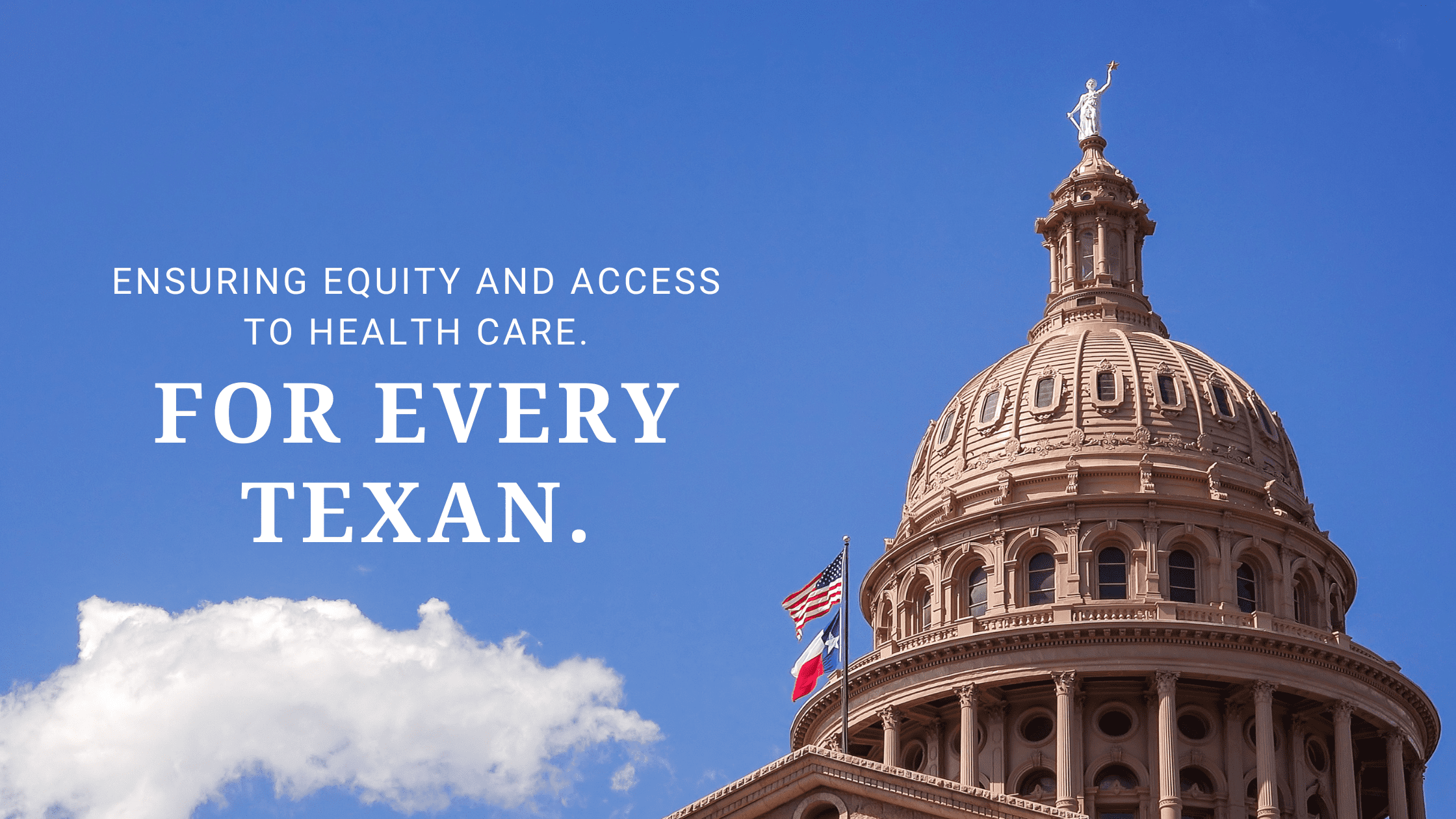This week, the new Texas House Select Committee on Health Reform will begin hearings on its ambitious and important list of interim charges, from tackling the growth of health care costs to increasing health care coverage.
In creating the committee, Texas Speaker of the House Dade Phelan puts a much-needed focus on health care policy. Every Texan is pleased to see that the committee will study “fiscally positive” options to ensure access to affordable, quality health care for low-income Texans and ways to better connect eligible-yet-uninsured children to Texas Medicaid and the Children’s Health Insurance Program (CHIP). Committee Chairman Sam Harless is correct in saying that eligible children falling off of coverage and going uninsured is a problem for families, and it’s one that Texas can fix!
Every Texan will provide invited testimony to the committee on the top three ways Texas can reduce its worst-in-the-nation uninsured rate:
- Accept billions in federal funds to provide Medicaid to “working but poor” adults — both parents and adults without any dependent kids at home.
- Remove barriers to enrollment/renewal of currently eligible individuals in Texas Medicaid.
- Maintain our state’s record-breaking enrollment at HealthCare.Gov. (Texas is already poised to do so.)
There is no question that the most immediately available, fiscally positive option to ensure access to health care for low-income Texans is Medicaid expansion. Medicaid expansion could cover 1.4 million uninsured, low-wage adults, 3 in 4 of whom are Texans of color. Texas is now one of just 12 states that have failed to pull down the critical 90:10 (federal:state) funding match to cover adults in poverty. Research shows that expanding Medicaid will actually save money for the state budget, even before a new, two-year federal-funds bonus of an estimated $3.9 billion is considered.
Texas should also remove state-imposed barriers that make it hard for currently eligible individuals to get and keep Medicaid. At least 400,000 uninsured Texas children were eligible in 2019 for Medicaid or CHIP but were not enrolled. Outreach is important because the lack of eligibility awareness among the families of those children is an issue, but outreach alone won’t cut it. Multiple barriers in the system add up to big roadblocks, too often causing eligible kids to lose coverage despite their families’ best efforts. Issues with these barriers will be exacerbated at the eventual end of the COVID Public Health Emergency, when HHSC must process Medicaid renewals for 3.7 million Texans on an unrealistically short timeline and without adequate staffing. Our testimony outlines the following action items:
- Rebuild adequate staffing for the eligibility system, which is severely understaffed today, leading to long delays for Medicaid and SNAP benefits;
- Increase efficiencies through automation and use of reliable data sources (including for income and address updates) to reduce workload burdens on remaining eligibility staff and families;
- Modernize the Your Texas Benefits website and app to make it easier to complete critical steps that should be simple: updating your address, resetting a password, and accessing your case online;
- Provide robust support for the concerns of mixed-immigration-status families, which includes 1 in 4 Texas children; and
- Maximize the use of all enrollment partners/extenders in the system, like health centers, food banks, hospitals, community organizations, and MCOs, so they can all assist clients with enrollment without having to funnel them back to the overburdened 2-1-1 support line.
Finally, Texas should maintain its record-breaking enrollment at www.HealthCare.Gov, which it is well positioned to do. In 2022, Texas Marketplace enrollment reached a record high of 1.8 million Texans. Record Texas and national Marketplace enrollment were driven in large part by Congressional action in 2021 to temporarily make coverage more affordable, and Congress appears poised to extend that help through 2025 with the Inflation Reduction Act of 2022. On top of that, a proposed fix for the “family glitch” should make more Texans in working families eligible for affordable coverage in 2023, and SB 1296 from 2021 (Sen. Johnson/Chairman Oliverson) will make 2023 coverage at HealthCare.Gov even more affordable.
Read Every Texan’s full testimony here.
